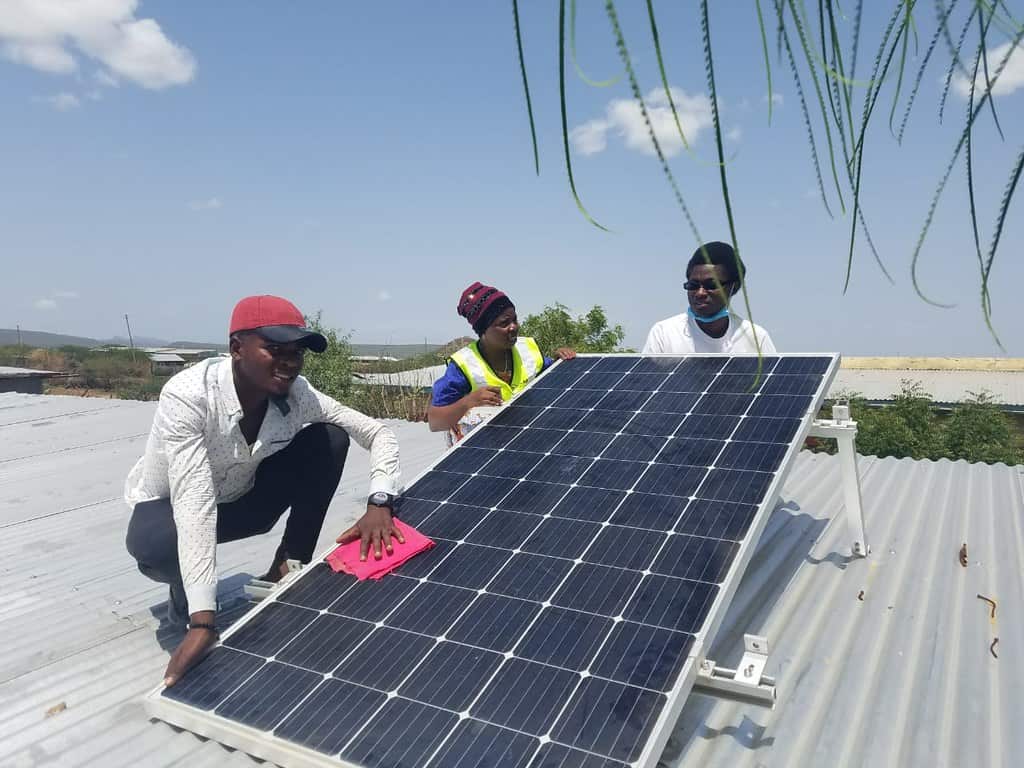Refugee communities from as far afield as East Africa and Scotland are leading the way with low carbon solutions to their energy, financial and food security issues.
In Turkana, northern Kenya, SNV operates the Market Based Energy Access II (MBEAII) Project in Kakuma refugee camp.
The camp is home to around 40 per cent of the country’s 475,000 refugees, with no access to energy from the national grid. Cooking and lighting solutions are expensive and inefficient with charcoal stoves adversely affecting health, safety and the environment.
The MBEA II Project is bringing affordable, clean cookstoves and solar solutions to thousands of households as well as businesses and social institutions in the camp. The clean cookstoves produce less smoke, consume less fuel and save users time.
“We used to buy firewood every 45 days. But since we started using this energy-saving stove, it’s now been 2-3 months since our last order of firewood…I was also surprised that the food, which used to take 1.5 hours to cook, now takes only half an hour!”
– Isaac Soita, a cook at Kakuma Mission hospital.
A combination of technical assistance and innovative finance mechanisms have helped clean energy companies develop distribution channels and set up installation and maintenance services, boosting local jobs along the way.
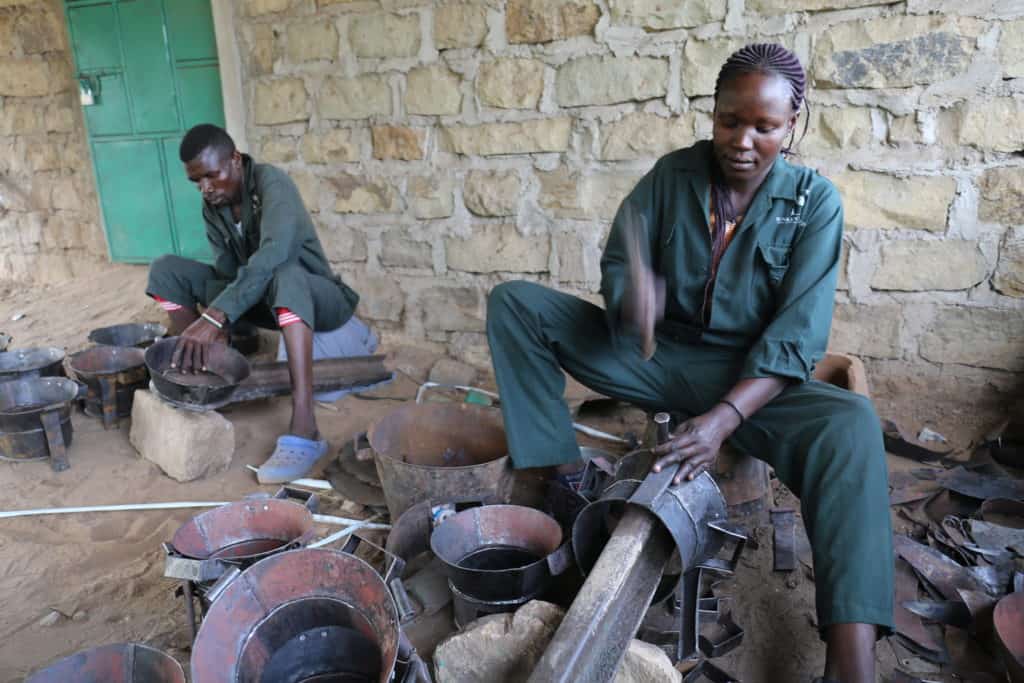
Credit: Mary Kiio/Ashden
Social enterprise Solar Freeze also works in Kakuma refugee camp, as well as in other humanitarian settings in Kenya, and offers pay-as-you-store refrigeration.
Founded in 2016 by youngsters from smallholder farming households who realised that post-harvest losses were a key challenge, Solar Freeze was started in order to offer cold storage to preserve agricultural produce. Today, Solar Freeze has diversified its service into the humanitarian context – particularly the storage of medical products and vaccines in healthcare facilities in Kakuma refugee camp, as well as providing cold storage to food and drink shops, fishing and other businesses and households in the camp.
Cooling as a service is relatively new in humanitarian settings with great potential. Solar Freeze offers cold storage at low prices by removing upfront purchasing costs – customers can pay-as-you-store or lease-to-own. Its hands-on training programme ‘Each One Teach One – Train to Earn’ where refugee youth and women are trained in technical skills to operate solar products has been particularly successful, equipping people for jobs with Solar Freeze and elsewhere.
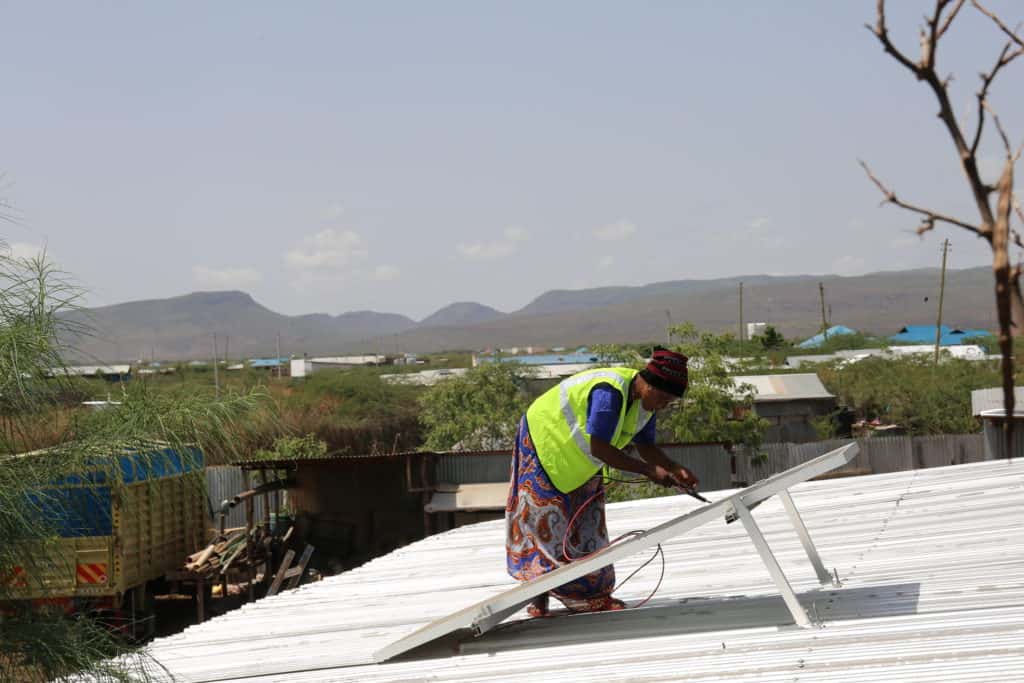
The ‘Welcoming a Green Future’ project in Edinburgh, Scotland, is helping refugees save money, eat well and respond to the climate crisis.
The Welcoming is a finalist in the green communities category of the upcoming Ashden Awards. Key to their work is a recognition that talking about climate change – and what new Scots can do to keep their own carbon emissions low – empowers migrants as well as helping to integrate them into Scottish society.
Refugees in the project are given practical help on home energy efficiency and digital literacy (how to understand and switch bills), waste reduction and recycling, food growing and sustainability. A gardening club and initiatives like the ‘sustainable cooking club’ and recycling and repairing workshops help share skills but also create friendships among other refugees and the local community. Since the project began in 2015, 224 climate activities have been delivered to over 2000 refugees generating 676 tonnes of CO2e savings.
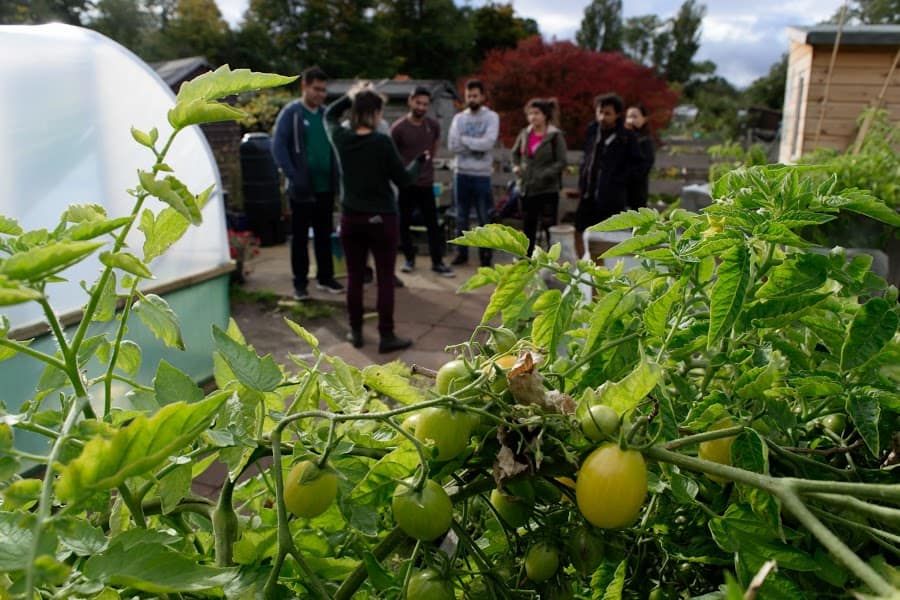
YICE Uganda – the Youth Initiative for Community Empowerment – is a grassroots initiative training women and young people, including refugees, in regenerative farming techniques.
YICE particularly work with smallholder farmers in rural areas where the pressures of earning a living with little resources has led to deforestation for charcoal production. Degraded soils from monoculture maize and bean fields fed with costly fertilisers and pesticides had made farming hard and unproductive. YICE’s training in regenerative agriculture focuses on farming a more varied set of crops, improving soils with compost fertiliser, biochar from waste charcoal dust and ‘no-dig’ mulching techniques, using natural pest control, and watering from new water harvesting tanks and drip irrigation kits.
YICE have also helped communities set up of local savings groups, and mobile technology developed by YICE’s partners keeps smallholders informed about training, quality farm inputs, and fair market prices for produce.
Joyce Nabukalu, a refugee living in the Kassanda district received training five years ago and has now changed from growing a few crops to feed her family to selling crops and earning an income.
“My agricultural productivity on my small plot has improved significantly. Before, my four children and I were unhealthy. I couldn’t buy them books or even a bar of soap. But now we are healthy and I can pay for them to go to school – all because of the vegetable growing.”
– Joyce Nabukalu, Kassanda refugee
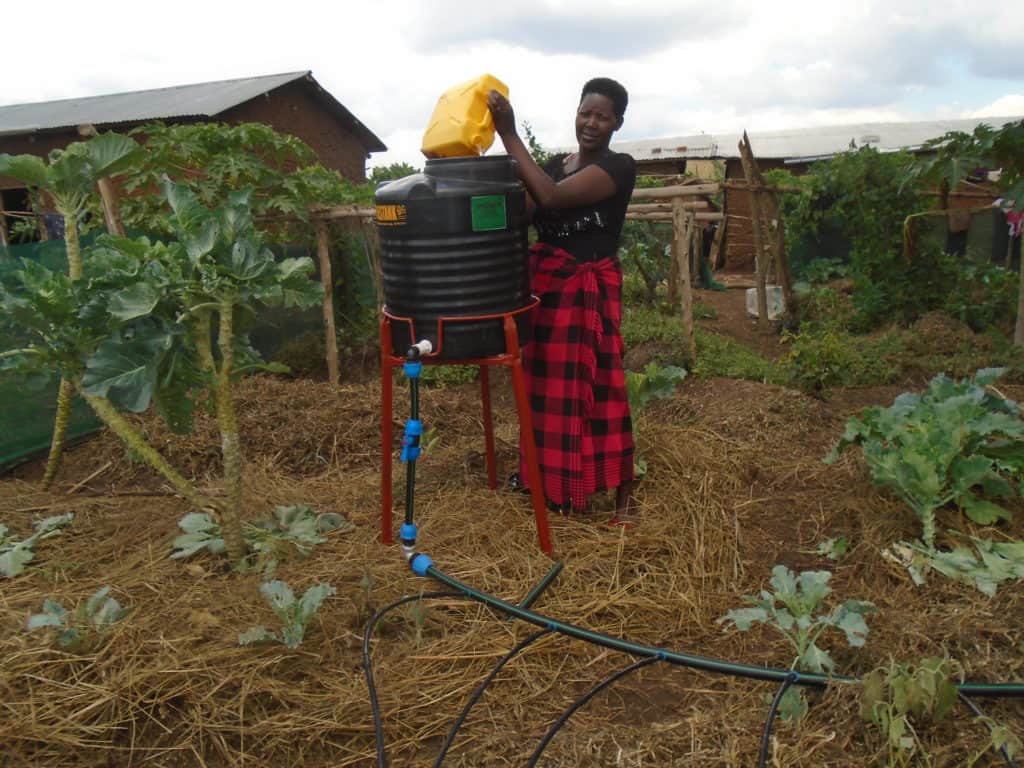
The winners of the Ashden Awards will be announced in November 2021. See the full international and UK longlists.
